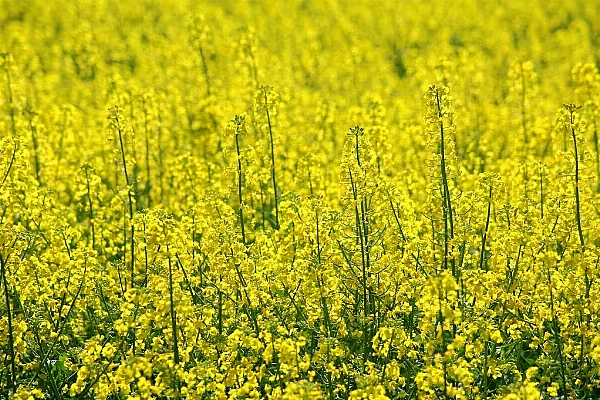Recent rain has brought relief to parched western European grain belts and improved conditions for cereal sowing and for earlier-sown rapeseed crops, analysts and traders said.
Limited rain and scorching summer temperatures had hampered early rapeseed sowing and raised fears of a repeat of drought losses seen during last year's planting season.
But widespread rainfall since late September, notably in top European Union grain producer France, has provided some relief.
'Better Position'
"We're in a better position than last year. The rains have been a good thing. There's still a major deficit in water reserves but there's enough moisture to work the soil," a French trader told Reuters.
French farmers have made a relatively slow start to wheat and barley sowing due to the rain.
They had sown 1% of the expected soft wheat area by 30 September, unchanged from a week earlier and below 5% progress a year ago, according to farm office FranceAgriMer.
The return of rain could keep the rapeseed area above the very low level seen in this year's harvest, but rapeseed sowings already lost may mean French farmers again sow large areas of wheat and later-sown crops like spring barley.
"For rapeseed we're going to stay at a fairly low number," Nathan Cordier of consultancy Agritel said. "We don't see soft wheat losing area, farmers don't have many alternatives."
In Germany, enough rain has fallen for timely plantings, including for rapeseed.
"Conditions have been much better than last year when dryness was a serious hindrance," one German analyst said.
"Winter rapeseed is now finished in the intended time scale and good progress with winter grains is being made. At this early stage of the season things are looking good."
More German Rapeseed
Germany's winter rapeseed area could expand to 1-1.2 million hectares from only 850,000 this summer, the analyst said.
"This expanded rapeseed area is likely to be at the expense of lower value winter grains such as barley," he added.
Germany's winter wheat area is likely to be about the same as the 3.0 million hectares harvested this summer, he said.
Wheat area is seen slightly higher in Britain but rapeseed continues to be out of favour with some farmers due to problems with cabbage stem flea beetles.
'Good News For Plantings'
"The rain seen at the end of September was good news for plantings as it allowed Black grass to emerge before farmers got started with their drilling," said Ben Bodart of CRM AgriCommodities.
Black grass is one of the most difficult to control and widespread weeds in arable crops.
"Flea beetle damages are once again widespread and ... it sounds like the acreage could be down on last year’s initial estimate," Bodart said.
In Poland, the second half of September was rainy which improved soil moisture and the condition of winter crops already planted, but delayed further grain sowings, said Wojtek Sabaranski of analysts Sparks Polska.
“There are no hard statistics yet, but we believe that the area planted to grains, especially winter wheat, may increase at the expense of rapeseed,” Sabaranski said.
He estimates that Poland’s winter rapeseed planted area for the 2020 harvest will be about 10% smaller than harvested in 2019 at about 800,000 hectares.
News by Reuters, edited by ESM. Click subscribe to sign up to ESM: European Supermarket Magazine.














